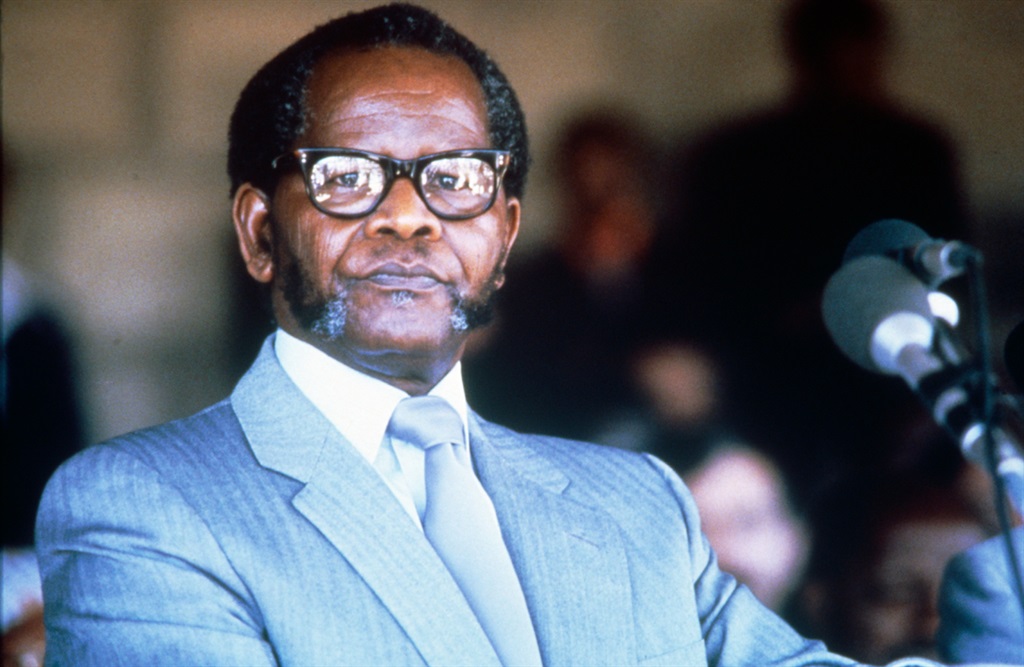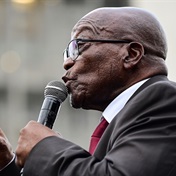
This year, 2017, marks the centenary of the birth of one of the outstanding leaders of the South African struggle for liberation.
As we mark the centenary of Oliver Reginald Tambo’s birth it is necessary for the people of South Africa and the African National Congress, in particular, to pause and take stock of the achievements or lack thereof of the goals and objectives that Tambo, his peers in the leadership of the ANC and the people of South Africa fought and sacrificed for.
The life and times of Oliver Tambo, his leadership style and his legacy cannot simply be a matter of historical value or academic interest.
It is that moment that we must use as a learning experience and determine what lessons can be drawn to assist us to navigate the socio-political morass and the turbulence confronting the ANC and our country.
What is it that makes him stand out? What makes him tower head and shoulders above some people who are in positions of leadership?
The answers are to be found in his personality, conduct and his love for the people of South Africa.
OR was a consummate strategist and tactician, a visionary who understood the importance of communication and change.
Through his vision he clearly understood that the survival of the ANC under the new circumstances was that it should embrace change and formulate new strategies and tactics that meet the requirements and the demands of the new conditions.
Failure to do so would render the ANC irrelevant and its demise would only be a matter of time.
It is therefore not accidental that in 1969 the ANC organised the Morogoro Consultative Conference to formulate its strategy and tactics to respond appropriately to the challenges of the times.
He was ethical, he had integrity and his conduct and behaviour was the product of deeply ingrained principles and values.
But, above all, he was a committed, dedicated and selfless servant of the people of South Africa.
When OR delivered his report to the 48th National Conference of the ANC in Durban on July 2 1991 – this is what he said: “... the fundamental question that we then had to resolve was how to transform our movement to meet the new situation in our country.”
He concluded by saying: “... we did not tear ourselves apart because of lack of progress at times. We were always ready to accept our mistakes and to correct them ... we succeeded to foster and defend the unity of the ANC and the unity of our people in general.”
This speaks to the calibre of the leadership of Oliver Tambo ... a leader who understood that change is a necessary condition for the continued survival and effectiveness of an organisation. This is a leader who was guided by a scientific approach to problem solving, “we did not tear ourselves apart because of lack of progress at times. We were always ready to accept our mistakes and to correct them.”
From his report it is easy to construe and deduce why Oliver Tambo kept the ANC united and fashioned it into a potent weapon to dislodge apartheid during the most difficult period in the history of the struggle against apartheid.
He had mastered the art of balancing theory and practice.
According to OR change meant moving the organisation from its old culture of doing things to a new one.
Transformation meant the modification of the organisation; to improve its effectiveness under conditions which were volatile, uncertain, complex and even ambiguous.
According to Darwin in his evolution of species “it is not the strongest of species that survives nor the most intelligent but the one most responsive to change”.
The change in the struggle terrain in South Africa in 1960 was triggered by the Sharpeville massacre and the banning of the ANC, the SACP and the PAC.
At that stage the ANC decided to embark on armed struggle and the manifesto of Umkhonto weSizwe declared “the time comes in the life of any nation when there remains only two choices, submit or fight. We shall not submit, we shall fight with all means in our power in defence of our people, our freedom and to achieve our freedom.”
When Oliver Tambo was sent into exile he was tasked with the “assignment to prepare conditions for the politico-military training of cadres of Umkhonto weSizwe”.
It is a matter of historical record that he executed this task with distinction and handed the ANC back to his peers “intact”.
It is no exaggeration that as we mark the centenary of Oliver Tambo’s birth, his movement, the African National Congress, faces an unprecedented crisis since the advent of democracy in 1994.
Millions of the people of South Africa, particularly the black majority, continue to be afflicted by high levels of poverty, millions of others, particularly the youth face the debilitating effects of unemployment, which does not only deprive them of the possibility to earn a living, but is accompanied by the loss of dignity and self-esteem.
The defeat of apartheid and the dawn of democracy in 1994 ushered in a period of hope and optimism among the people of South Africa.
Many believed, and justifiably so, that the advent of democracy signalled the death of the old and moribund system of apartheid and the birth of the new which would be truly reflective of the spirit of the Constitution of the republic, which enjoins us to “recognise the injustices of our past and to honour those who suffered for justice and freedom in our land”.
Our constitution is unequivocal that the new democratic state must, in word and in deed, and by its very conduct seek to:
• Heal the divisions of the past and establish a society based on democratic values, social justice and fundamental human rights;
• Lay the foundations for a democratic and open society in which government is based on the will of the people and every citizen is equally protected by law;
• Improve the quality of life of all citizens and free the potential of each person; and
• Build a united and democratic South Africa able to take its rightful place as a sovereign state in the family of nations.
It is indeed an irony of our times that during the year of the centenary of Oliver Tambo, when the people of South Africa are supposed to enjoy the freedoms prescribed by the Constitution, they have to contend with high levels of corruption, the implications of state capture and the attendant evils and criminality that accompanies them.
None can deny that the organisation of Oliver Tambo is “tearing itself apart” and many are even predicting the imminent demise of the ANC.
By definition state capture means that the political elite in the ANC, who exercise power, have deviated from the principles and values that informed the leadership of Oliver Tambo.
They have demonstrated not only a reluctance but a complete contempt for calls to hold a national consultative conference.
The elite is no longer committed to serve the interests of the people of South Africa, consistent both with the imperatives spelt out in our constitution.
Specific ministers are appointed who are ready and willing to carry out directives intended to advance state capture. Over and above, state institutions have been compromised and paralysed.
It goes without saying that those committed to state capture would also do everything possible to weaken and/or render ineffective all state institutions charged with the responsibility to ensure strict respect for the Constitution and the law.
This is not consistent with the principles and values of the ANC and those of Oliver Tambo, which created the necessary conditions for him to forge the ANC into a formidable instrument and a weapon for change.
The survival of the ANC depends to a great extent on the building of a cadre that is committed, dedicated and selfless.
A cadre whose ethical conduct and integrity is beyond reproach.
A cadre driven not by selfish motives of personal gain but a deep and uncompromising love for the people of South Africa.
Its survival depends on the acceptance by the leadership of the ANC that the only vehicle now that can save the ANC is a consultative conference. They must take a leaf from OR book of leadership and learn.
“We did not tear ourselves apart because of lack of progress at times. We were always ready to accept our mistakes and to correct them.”
That is the legacy of Oliver Reginald Tambo.
* Thami Ntenteni is the head of communication of the Thabo Mbeki Foundation and he writes in his private capacity




 Publications
Publications
 Partners
Partners








